Supporting characters can be important- sometimes they can even outshine some of the main players. Hodor wasn’t a top-billed character, but I’ll be damned if his demise didn’t hit me harder than that of poor Ned Stark. And in the game of thrones, apart from those who fight the battles, there are others who pull strings in the dark and try to influence big players to change the course of a battle or even the future of an entire continent.
One such master manipulator, presumably the one who’s solely responsible for the start of the War of the Five Kings, died after the remaining Stark kids beat him at his own game. One has fallen in disgrace and the other remains at the side of the dragon queen. This article is about these two surviving players, who are wholly different and yet have a lot in common: Varys and Melisandre.
Of the two, it is Varys’ role that underwent the most changes in the process of adapting the books to the screen, but the character’s essence is well preserved. Melisandre’s part was expanded a little, with the addition of scenes that were only implied or didn’t exist at all in the source material, but that make sense for the character and have had a direct influence in the events of the narrative.
In a shortened final season that is poised to be battle-centric as the Great War looms over Westeros, there’s not much time for political maneuvers, and Melisandre’s knack for burning people died with Stannis Baratheon. So what’s going to be the fate of the Spider and the Red Woman? I’ll be making some educated guesses, while eagerly awaiting to find out!
VARYS
Varys, known as “the Spider” by both friends and enemies alike, is one of the most intriguing and interesting characters of the series (the books and the screen adaptation too).
Conleth Hill plays him with much gusto, bringing a real sense of fun in many of the scenes he shares with Peter Dinklage or Dame Diana Rigg, but also nailing the more threatening side of the Master of Whisperers, such as the moment in Season 3 (Episode 4: “And Now His Watch Is Ended”) when Varys tells Tyrion the story of how he was castrated, and reveals that he managed to track down and capture the sorcerer who cut him. We do not know how Varys took revenge, but the implication was clear enough: under the seemingly calm demeanor there’s a ruthless man.
Up to Season 4, the character remained mostly loyal to the source material, but the road diverged in the finale (“The Children”), when Varys decided to join Tyrion and travel with him to Essos. This was a consequence of a not insignificant number of characters from A Dance with Dragons getting the axe, most notably Jon Connington and “Young Griff”. By the end of said book we discover Varys has always been a Targaryen loyalist and is actively working to undermine the Lannister rule in order to pave the road for Aegon. And even before that, wanting to remove Robert Baratheon (despite the relative peace Westeros had under his reign) makes sense because he was a wasteful king who indebted the crown, and whenever he died illegitimate heirs would ascend, allowing House Lannister to seize control of the Iron Throne.
The book version of Varys is also responsible for the deaths of Kevan Lannister and Grand Maester Pycelle, whereas in the show they died in different circumstances and at the hands of other people. In the novel, their deaths are meant to further destabilize an already messy situation for the Lannisters, and in the TV series it was a matter of removing all opposition to Cersei in one fell swoop.
How Daenerys fits in Varys’ plans is anyone’s guess for now. It’s a bit weird to be betting on two different Targaryen claimants at the same time, considering they were expecting Khal Drogo to make a move and help Viserys. Episode 2 of the seventh season (“Stormborn”) implies Varys (and his co-conspirators to an extent) didn’t take Dany into consideration at the time, since she was supposed to be married off to Khal Drogo and be little more than a trophy wife.
The show wisely took a simpler path that’s easier to follow than the many moving pieces from the literary version.
More than being a Targaryen loyalist, Varys’ support for Daenerys seems to stem from his belief that she’ll be a good ruler who’ll put an end to all the bloodshed and suffering caused by the war that is still raging, even if her worst impulses need to be reined in from time to time.
Given that he’s not one of the main characters nor a fighter (as he bluntly told Ned Stark, “When you look at me, do you see a hero?”) I wouldn’t expect him to have a big role in what is likely going to be a very battle-centric final season. I have trouble even picturing him as a character who would sacrifice himself or stay behind in order to give others a chance to escape, since it’d be a waste. Unlike Brynden “The Blackfish” Tully or Syrio Forel, Varys wouldn’t be able to hold off armed enemies (unless there’s some trickery involved and Varys acts merely as bait?).
There are some interesting possibilities, regardless, even if Varys doesn’t get to have a lot of screen time.
The voice from the flames: The night a sorcerer castrated Varys and threw his parts to the fire, he heard a voice calling from the flames. That memory still haunts his dreams: not the blade, not the mutilation he suffered, but the words he heard. He has hated magic and all those who practice it ever since.
In the fifth episode of Season 6 (“The Door”), Varys and Tyrion meet with a high-ranking red priestess named Kinvara to seek her help in support of Daenerys Targaryen. Varys does little, if anything, to hide his disdain for red priests, pretty much calling Kinvara a fanatic to her face.
Instead of losing her temper, she gave an ominous reply, asking Varys if he’d like to remember what the voice said, or if she should tell him the name of the one who spoke. Varys seems disquiet and remains silent.
Ever since the “sorcerer in a box” scene I wondered if we’d ever know the details of the conversation Varys heard, but time passed and I assumed it’d remain a vague piece of backstory until Kinvara brought the subject back three seasons later. Alas, no new information was provided, but the question remains: will we ever find out?
A part of me very much wants to and even believes it’s inevitable, since the shows keeps very few secrets. Unlike the books, which are full of prophecies and a high number of as-of-yet unsolved mysteries, most of the questions have been answered, from the origin of the White Walkers to Jon Snow’s true name and parentage.
On the other hand, it’d be cool if no answer is given, in a similar fashion to Tyrion’s “honeycomb and a jackass” joke. There are few surviving characters and none of them really fits the bill for the voice’s true identity, so it can’t possibly be a huge revelation. Besides, it’s nice to keep one or two mysteries alive for fans to keep discussing once the show is over.
Dying in a strange country: This may or may not be related to the “voice from the flames”. In a brief conversation Varys had with Melisandre in the third episode of Season 7 (“The Queen’s Justice”), the red priestess told Varys of her intentions to travel to Volantis. The Master of Whisperers is apparently pleased about this, but then Melisandre says: “I will return, dear Spider, one last time. I have to die in this strange country, just like you”. As it happened with Kinvara, the rug is once again pulled from under his feet and he’s rendered speechless.
Carice van Houten said in an interview with Elle that she personally thinks death is coming for Varys in Season 8, and though he may try to run from it, he won’t be able to escape.
He made it clear to Dany that she can’t expect blind loyalty from him, and Tyrion is well-aware that the Spider won’t risk his neck for his friends. Varys didn’t help Ned and testified against Tyrion, and though he did help the latter to escape King’s Landing, that was mostly because of Jaime. The books made it clear:
Tyrion: You never told me why you set me free.
Varys: Your brother asked me to.
Tyrion: Could’ve said no.
Varys: Refuse the Kingslayer? A dangerous proposition.
The show, however, took a somewhat different approach, with Jaime telling his little brother “you have more friends than you thought”, which suggests the plan was cooked by both Jaime and Varys, instead of the latter being coerced into helping Tyrion.
I think it’s very unlikely Varys would betray Daenerys. He has burned all his other bridges. Qyburn has his little birds and Cersei wouldn’t have him back for the role he played in Tyrion’s escape and the murder of Tywin. I feel safe in betting that his demise won’t be caused by a dragon or the blade of an unsullied soldier.
Should he die in Season 8, I don’t feel it’d be a momentous event. He’s a very important character to be sure, and one that’s beloved by fans, but no hero material or even a character whose death would elicit tears from the audience, like Hodor. As Varys himself said, “Who would mourn poor Varys then? North or South, they sing no songs for spiders”.
My guess is that he’ll live to continue serving as an advisor and Master of Whisperers, if either Daenerys or Jon (or both of them) becomes the ruler of Westeros. Melisandre’s prediction is vague enough, and she’d still be right if Varys dies of old age in Westeros, never having returned to Lys.
These are admittedly not very exciting predictions, but Varys’s importance lies precisely in all the political maneuvering that happens behind the scenes. Other characters will have all the glory of going out with a bang, but the Spider will remain to help rebuild once the dust settles.
MELISANDRE
Lady Melisandre of Asshai, known as the Red woman, is also a character who whispers in the ears of kings and has an agenda of her own, but her methods and the mystery behind her persona are wholly different than those of Varys’s.
Carice van Houten masterfully brought to life a very difficult character to portray in live action, since in my opinion there was a big risk of turning Melisandre into one big ham, considering her fanatic devotion to both Stannis and R’hllor, and also the human sacrifices she was responsible for.
Some of the character’s characteristics from the book were toned down for the adaptation, such as her red eyes or her bright red hair, most likely to avoid them looking unnecessarily distracting.
Although there have been some alterations in her storyline, the screenwriters remained close to the source material for the most part. Some things that were only implied in the books, such as the “shadow baby” being the result of Stannis and Melisandre having sexual intercourse, are explicitly shown. And long-standing theories like the red priestess being much older than she looks, were confirmed in the sixth season’s premiere (“The Red Woman”).
Whether if there’s really a Lord of Light or not is still a matter of debate, but It’s interesting to note that the magic involved with this particular religion is real. Melisandre is not only unnaturally long-lived, but the novels also show that she can go for days without eating since R’hllor “provides her with all the nourishment her body needs”. When maester Cressen attempts to poison her with wine, she’s unaffected -whereas the maester dies. And there’s also the fact red priests are able to revive people -though both Thoros and Melisandre acknowledge it’s “the lord’s will” if someone comes back from the dead or not.
Arya observes that Beric Dondarrion never eats and doesn’t need to sleep. But is Melisandre “dead” too? While I doubt it, A Dance with Dragons hints at a backstory that remains vague, when Melisandre recalls her past as a slave girl named Melony, sold to the great red temple. We don’t get to explore a great deal of her past beyond that.
And curiously enough, the show has made it clear that even non-believers (such as Stannis or Sandor) are able to see visions in the fire.
I expect the R’hllor-related magic to remain unexplained nonetheless, since magic is always a tricky subject in the fantasy genre, hard to pin down. Even fantasy sagas that revolve around magic, like Harry Potter, are inevitably riddled with holes in their own explanations and rules. So it’s better to let the sleeping dogs lie, indeed.
The burning of Shireen Baratheon remains a controversial topic. David Benioff and Dan Weiss said they took this story bit from George RR Martin himself, but with the sixth book of the series being still in the works, we can’t compare. And the logistics (based in the current character locations and developing events) are complicated. Nevertheless, it’s the defeat of Stannis what makes Melisandre have a crisis of faith, especially after realizing she sacrificed Shireen for nothing.
After Davos discovers the truth, and once the battle against Ramsay is won, she’s expelled from Winterfell and is warned to never return, since she’d be facing execution. The red priestess departs the North, but still manages to reunite Daenerys and Jon before leaving Westeros -but not for good, as she told Varys.
Knowing that she’s slated for a return in Season 8, though her story could’ve easily ended with her departure, it’s safe to assume she has a rendezvous with death. But how will it happen?
Executed by Arya: Melisandre briefly made it to Arya’s kill list, after she took Gendry away in Season 3. And though she’s apparently no longer a part of said list (and Gendry made it out alive, which would render Melisandre’s inclusion moot), she looked into Arya’s eyes and told her they’d meet again one day.
It remains to be seen how (and when) that meeting will happen. Four seasons have passed since that ominous prediction, and the parts involved don’t seem to be looking forward to it (or dreading it). Maybe plans changed behind the scenes or perhaps the dialogue (or the vagueness of it) made it seem like a bigger deal than it really is, but currently I don’t see a lot of motivation for Arya to kill Mel. Other than crossing a name off her list, it wouldn’t be really satisfactory.
Surely they’ll meet again. The consequences of it may not be so deadly, however.
Executed by Davos: As opposed to Arya, Davos does have plenty of reason and motivation to kill Melisandre. In fact, he told her that if he ever saw her again, he’d execute her himself.
The loss of someone who was like a daughter to him surely still hurts Davos, and he’s unlikely to ever forgive the red priestess despite her important role in retaking Winterfell from House Bolton.
Davos already tried to impulsively kill Melisandre, and paid the price for it. They were always uneasy allies at best. And now there’s a huge chasm between the two.
Though it makes more narrative sense than having Arya executing her, and it’d be a way to end the feud between the two, I personally wouldn’t like this outcome. Davos has a forgiving and gentle nature, as evidenced by the fact he never harbored resentment towards Stannis for chopping his fingers off, or for dooming himself and his entire family (and army) by listening to Melisandre. Tyrion was directly responsible for the death of his son Matthos (and Davos does remember. “Last time I was here you killed my son with wildfire”), but there’s no bad blood between the two.
Much as he’s justified, I’d be sad to see him killing the red priestess.
Melisandre is Nissa Nissa: This may sound a bit crazy or far-fetched, but please bear with me. Although the show has been really low on prophecies and references to mythical figures, there have been some tiny details sprinkled here and there.
In the Season 2 premiere (“The North Remembers”) Stannis’s sword is named Lightbringer, like the sword of legend that belonged to Azor Ahai.
Azor Ahai is a legendary hero (according to the stories of the followers of R’hllor anyway) who forged a sword to drive the darkness away and defeat the Others (or the White Walkers). But the power of this sword came with a heavy price: Azor Ahai had to sacrifice the life of his wife, Nissa Nissa. He pierced her heart with the blade, and her soul combined with the steel, creating a hero’s sword that wouldn’t break.
Legend says that Azor Ahai will come back to fight the Others once more, as a champion reborn, sent by the Lord of Light himself.
The White Walkers have already breached the Wall and began their invasion of Westeros, and Jon has been resurrected by Melisandre (or by R’hllor through her). Fans have theorized dozens of possibilities for the identity of Azor Ahai, from Daenerys Targaryen to Jaime Lannister, but Jon is the one that makes the most sense for me. And considering Melisandre’s longevity and her obsession with this legend, including her affinity to fire, I think it makes her a plausible candidate for Nissa Nissa’s role.
Melisandre wants to help in the Great War, and possibly seek to make amends for the damage she has caused. She’s aware that her fate is to die in Westeros, but we don’t know how it’ll happen -maybe she doesn’t know the details herself. Perhaps the realization will hit her during the trip to Volantis, and she’ll come back to fulfill her role, as told in the legend.
It wouldn’t be as much of an execution but more of a willing sacrifice. Giving her life in order to save others, instead of burning people for naught, would be one hell of a way for the Red Woman to redeem herself.
The main problem I see with this theory is precisely that the show has shied away from these elements from the books, possibly to keep things mostly grounded and realistic, but then again, it’s a series with dragons, magic and ice zombies. An ancient hero reborn would be hardly the most bonkers thing that has happened so far.
As opposed to other characters I’ve talked about in previous “Endgame” articles, Varys and Melisandre posed a bit of a riddle for me. It’s not that the others are “predictable”, but their paths are a bit more clear: they have enemies and scores to settle, goals they want to accomplish, ambitions they have expressed. Not the same case with Varys and Mel, since they’ve kept things ambiguous and they don’t even have foes (Davos hates Melisandre, but the feeling isn’t mutual. And Varys didn’t seem to feel annoyed by Qyburn taking command of the little birds).
As with all my predictions, what the screenwriters have in store could be something completely out of left field, and I expect no less. I’m fully expecting Varys to be one of the few who live to see the end of the Great War, but if he dies I’ll sure be surprised. On the other hand, Melisandre is a safe bet when it comes to characters who are going to kick the bucket in the final season, but the how remains a mystery.
Nonetheless, I’m really glad both Conleth Hill and Carice van Houten will grace our screens as their GoT characters one last time when Season 8 finally arrives next year. It still feels far away, but we’re getting closer each day. 2019 can’t come soon enough!
The post From the Maester’s Desk – Endgame: The Spider and the Red Woman appeared first on Watchers on the Wall.
Via http://watchersonthewall.com
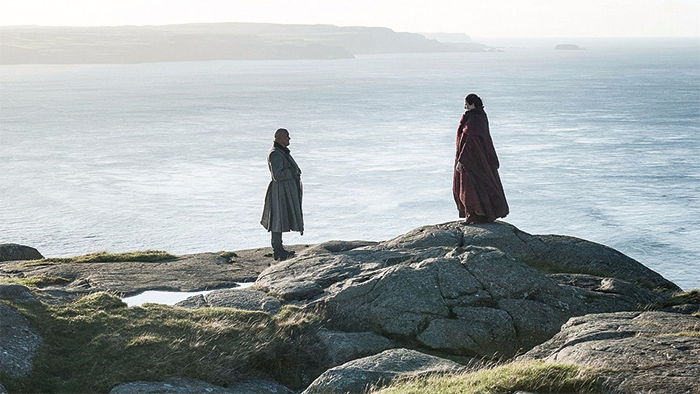
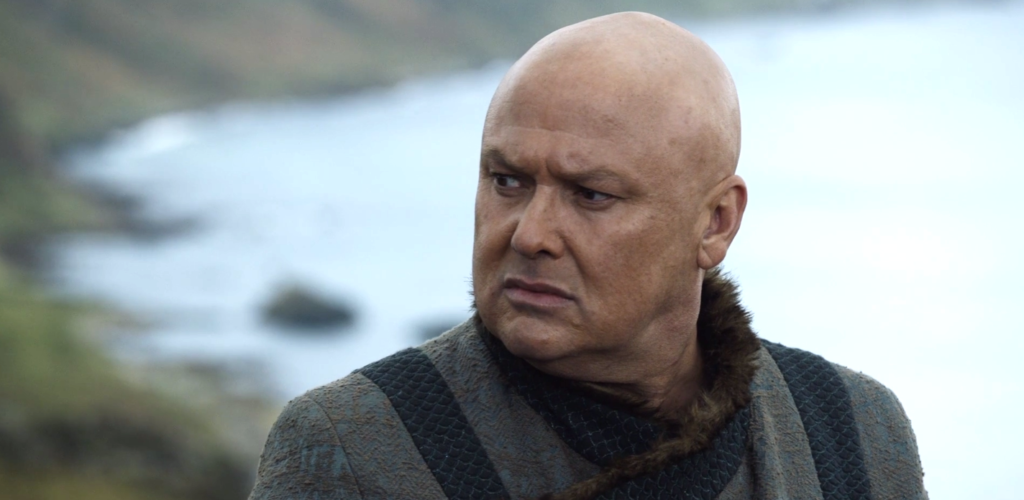
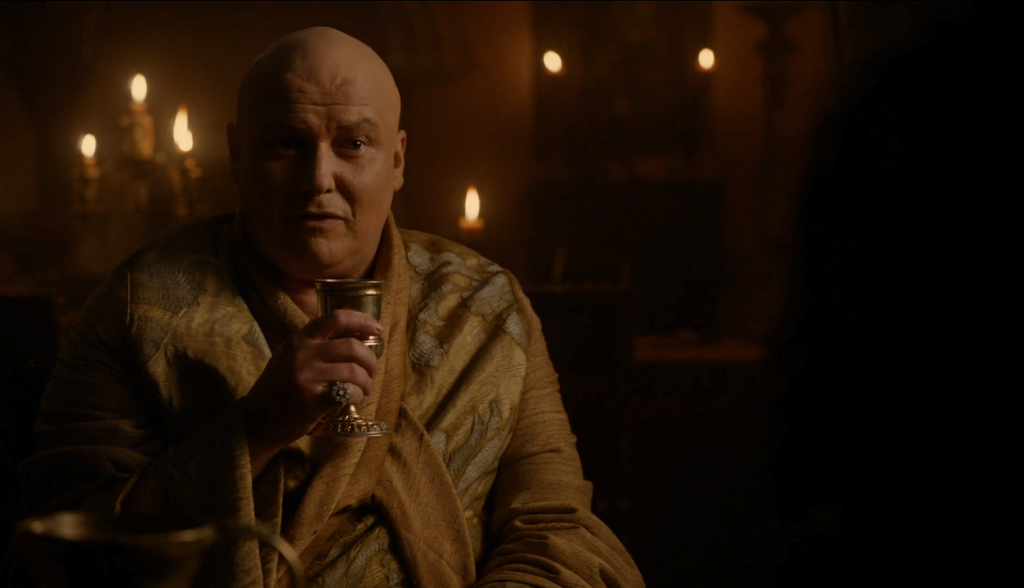
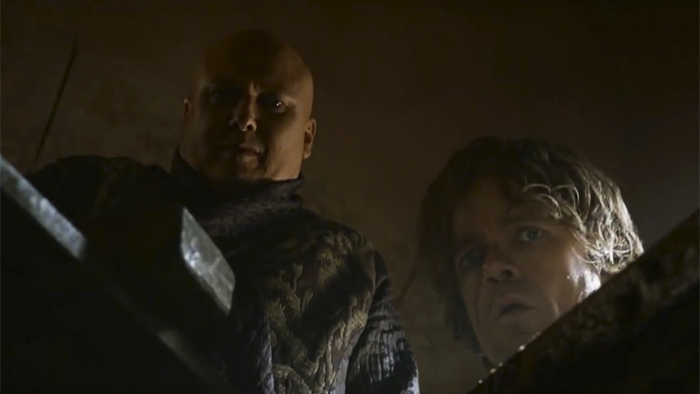
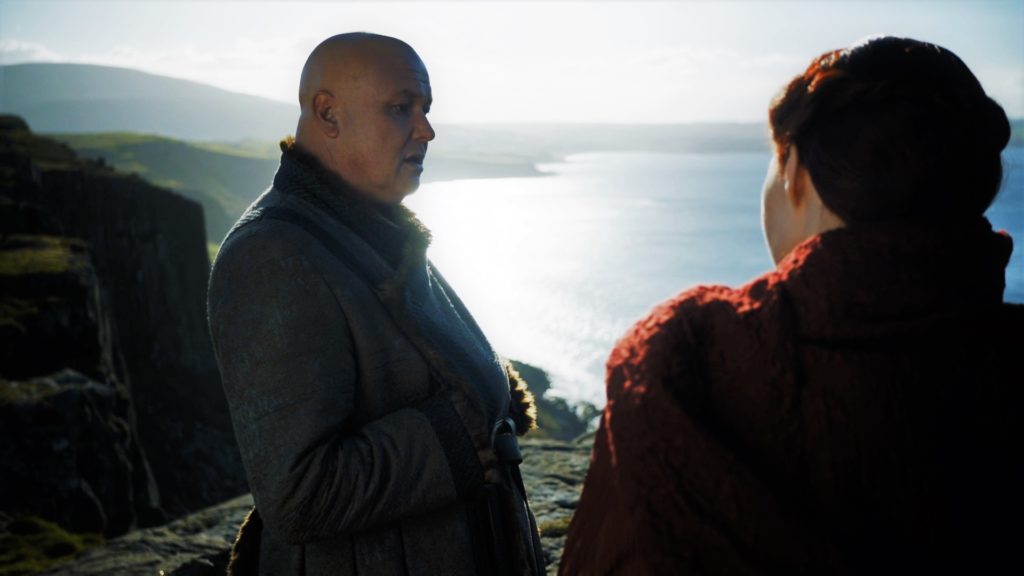
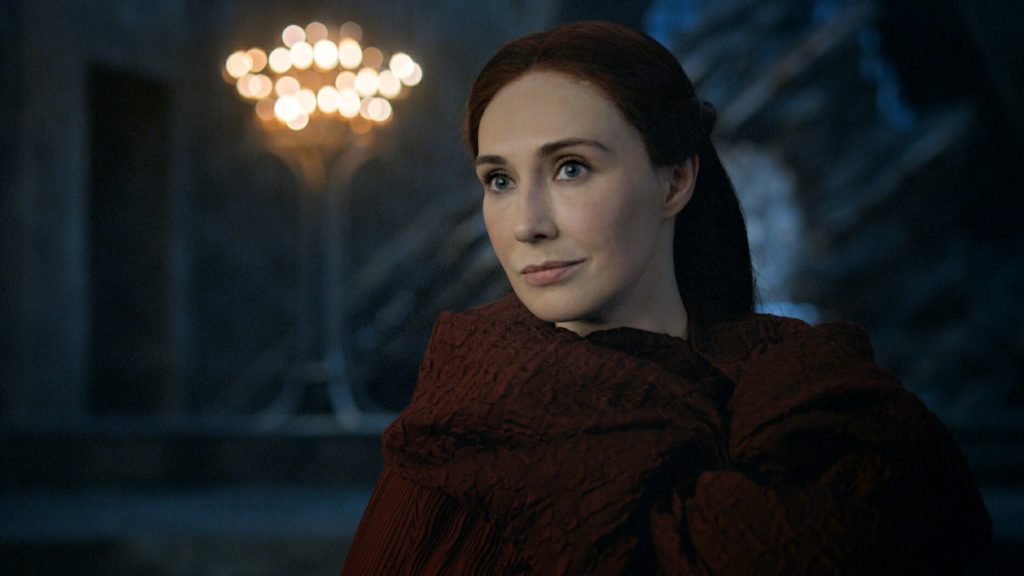
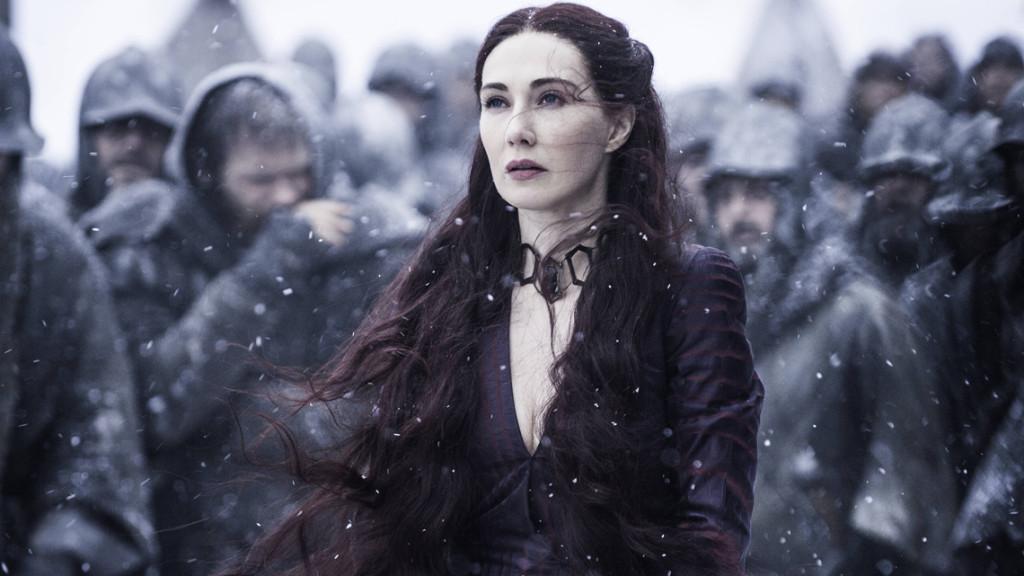
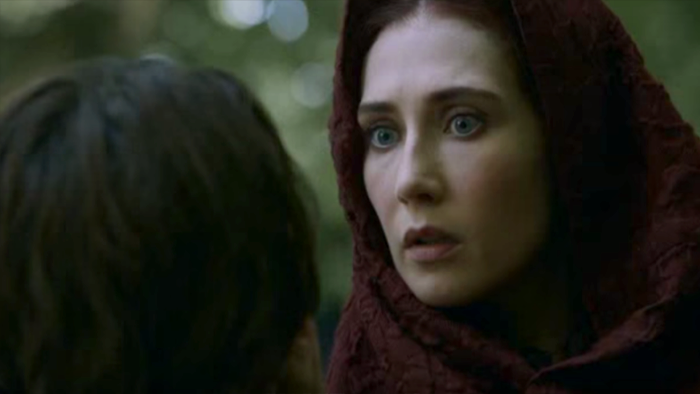
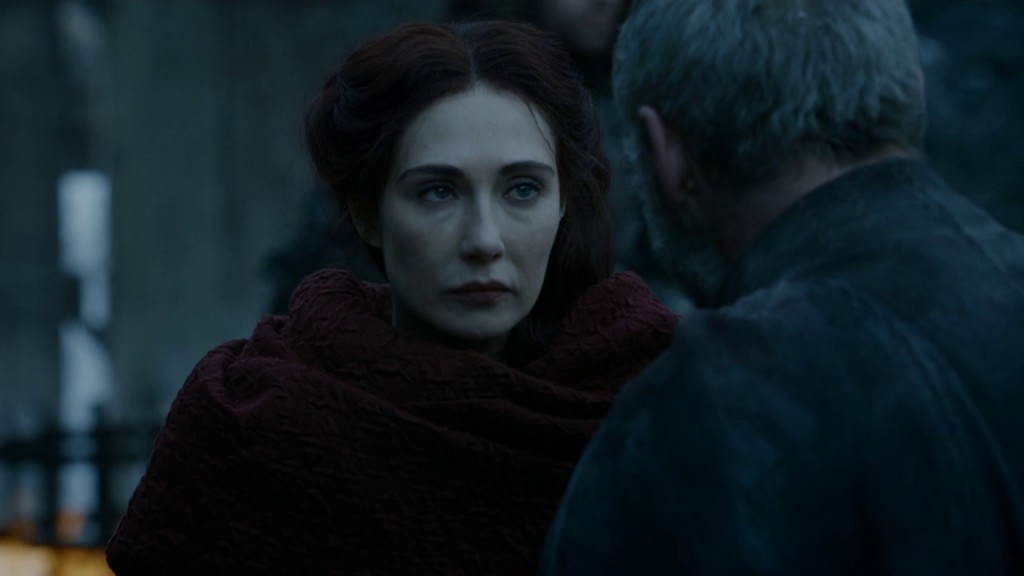
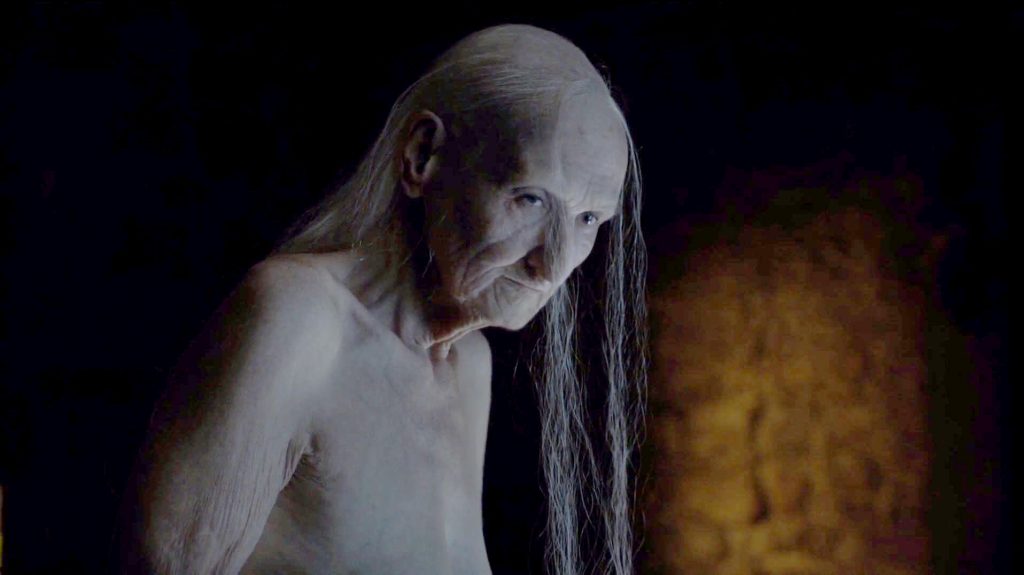
No comments:
Post a Comment